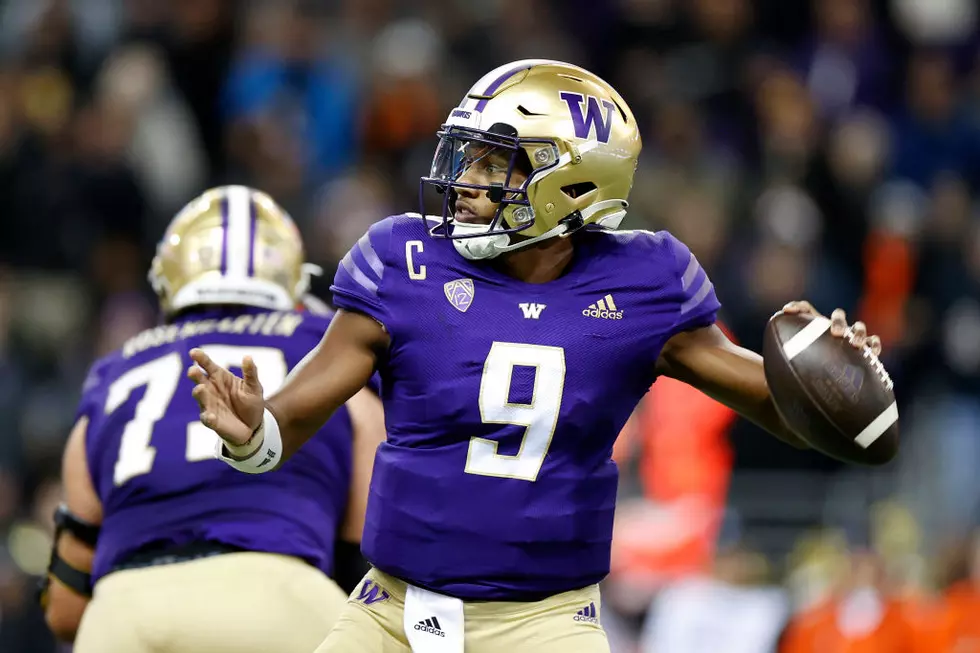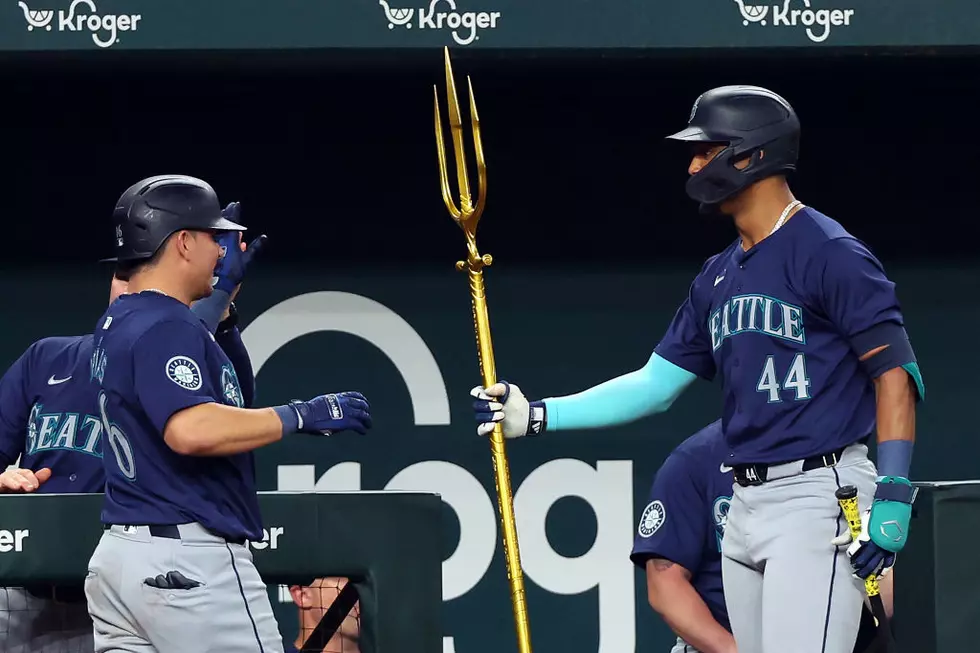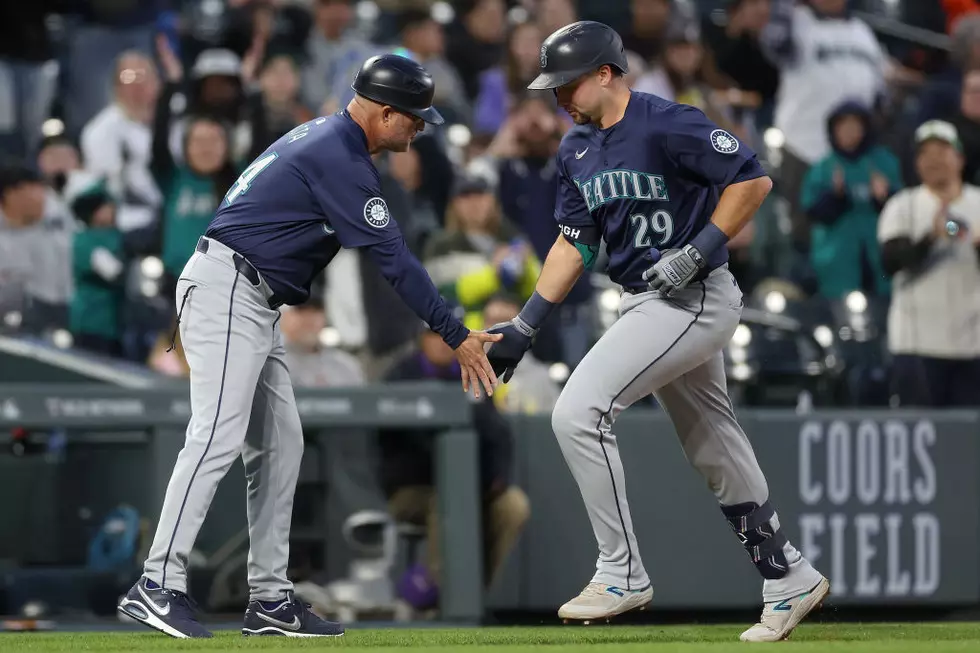
Realignment; Longer Trips & Greater Traveling Costs for CFB Fans
POND GAP, W.Va. (AP) — In seven decades of following West Virginia football, little has gotten in the way when Terry Keenan wants to see his beloved Mountaineers.
Conference realignment promises to be a headache.
College sports and the traveling fan are on course for a big reset in 2024. TV money has lured Southern Cal, UCLA, Oregon and Washington to the Big Ten. Arizona, Arizona State, Colorado and Utah will join the growing Big 12. And Oklahoma and Texas will head to the Southeastern Conference.
Although a few regional rivalries have been created or preserved, longer trips will be the norm.
How long? A one-way flight involving Oregon and Rutgers in the new Big Ten is 2,900 miles (4,667 kilometers) and slightly less for schools like Southern Cal, UCLA or Washington. That's more than five hours on a plane.
Time will tell whether football fans will embrace this new concept, or whether realignment will put a dagger into the heart of the road warrior for games that aren't marquee matchups. For every chance for a new Big Ten school to play at Ohio State, there will be trips such as Utah playing UCF in Orlando, Florida, or Arizona State traveling to Morgantown, West Virginia.
Keenan isn't thrilled, although he still has a year to figure it out, especially after the conference schedules are announced.
“Just speaking for myself, I don’t know. It’s a bad deal, really,” said Keenan, 74. "We’re on the East Coast and everybody else is in the Midwest or on the West Coast. Probably the majority of the fans won’t be able to do that. It puts a burden on them if they want to see the games in person.”
Roy Nwaisser has attended every Southern California game, home or away, since 1992, except in 2020 when fans were prohibited at some games because of the pandemic. One year, his best friend moved his fall wedding to a Friday to accommodate Nwaisser.
Realignment isn’t going to do him any favors.
“I’m just a little concerned that moving to the Big Ten is going to exponentially increase the number of things that could go wrong and result in me missing a game and breaking my streak,” Nwaisser said.
While distance and cost are the greatest factors, there are other things to consider — weather-related flight delays, cold weather destinations late in the season, the quality of an opponent and whether there's anything else worth doing in a far-away destination.
“It’s going to be terrible,” said Tom Aiello, a Valdosta State history professor and author of several sports books, including one on the Bayou Classic between Grambling State and Southern. “College football was built on rivalry games, and regional rivalries at that. And those regional rivalries were largely built on some kind of personal issue. And all that goes away in these kind of manufactured conferences that they’re creating.”
Paying for all the long flights to new places might seem daunting, but domestic leisure traffic is expected to remain strong in 2023 and 2024, the nonprofit U.S. Travel Association said. Government figures show that while average airfares skyrocketed last year as travel began recovering from COVID-19 restrictions, prices have eased. But hotel rates have kept rising: the average room costs $156.47, up 19% from August 2019, according to commercial real estate data firm CoStar.
How far fans will go to see their favorite team depends on the situation, said David Tyler, an associate professor at UMass and an expert in sports rivalries.
“There is a limit in terms of the distance that people can travel for these," Tyler said. ”But when they’re traveling for games, it’s typically about the experience when they’re traveling those big distances. It’s about the experience and the camaraderie and the other people more than the game itself."
While a core group of fans will be willing to travel a certain distance, games requiring that much more time on a plane will hurt attendance, Tyler said. “That’s when you’ll really see those diehards not willing to travel to those games.”
The first few years of realignment shouldn't make a difference, according to two experts in sports rivalries. Joe Cobbs, a professor at Northern Kentucky, said there initially will be a “novelty effect” for traveling fans. Cody Havard, an associate professor in sport commerce at the University of Memphis, calls it the “honeymoon stage.”
“Like if you’re a big Indiana Hoosiers fan, you might say, oh, this would be great to go and see a game at Oregon. What a great opportunity," Cobbs said. “But, you know, the third, fourth time that they play in Oregon, are those fans still going to want to make that trip if they’ve already made it?"
Arizona fan Paul Volpe recently embarked on an exhibition trip with the Wildcats basketball team to Israel, so distance isn’t an obstacle for him. But getting from Tucson, Arizona, to Morgantown “is going to be tough,” he said. “But I’m excited to see the new venues. All of those stadiums, I’ve never been to.”
Realignment also brings disappointment and stress to fans of former Pac-12 schools who will no longer see their team at the Rose Bowl for the conference football championship game or in Las Vegas for basketball.
“To get to Kansas City, at least for basketball, that’s going to be a challenge," Volpe said.
Marie Robbins has been an Arizona State fan ever since her family moved to Scottsdale, Arizona, in 1979. Now living in Seattle, she attends Sun Devils' games whenever the chance comes up, either in the Pacific Northwest or back in Arizona.
Despite the longer travel starting next year, “I’m personally very, very excited because the Big 12 lives, breathes and dies by college football just like I do,” Robbins said.
Besides, realignment will open up new avenues for some people to return to their roots.
Robbins said her wife graduated from TCU, “so it already generates some intermarriage household rivalry.” She also anticipates a trip to West Virginia, where she lived a few years as a child.
“That’s part of the country that is part of our heart and soul,” Robbins said.
Keenan has not missed a West Virginia home game since 1975, except during 2020, and has been to every school in the old Big 12, which added BYU, Central Florida, Cincinnati and Houston this season.
His advice to traveling fans in a new conference: “Probably do it while you can," he said. “You just live one time."
More From 1460 ESPN









